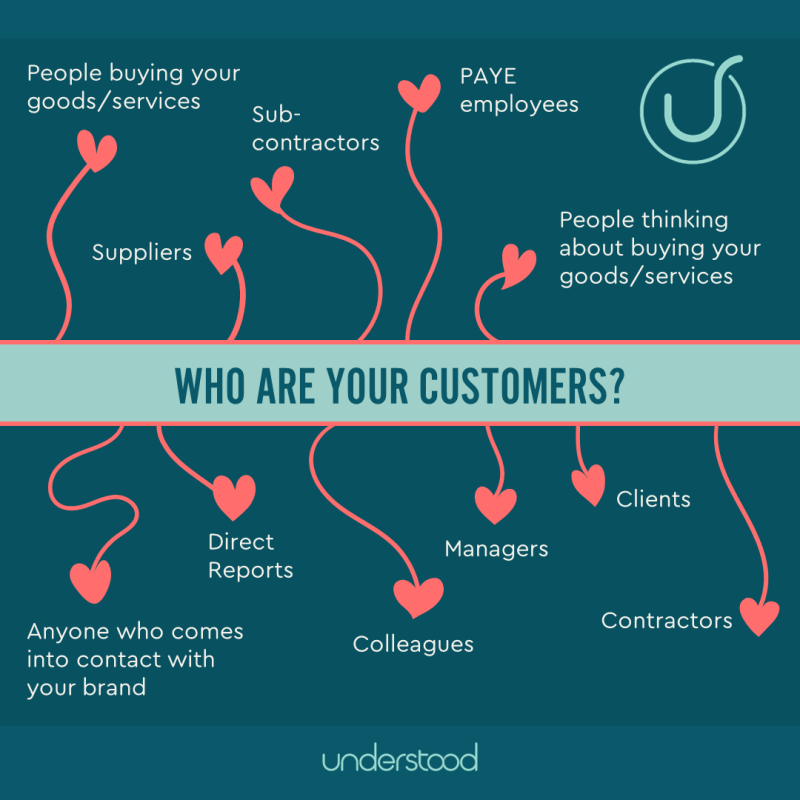
Suppliers = Customers? The importance of the supply chain in the customer experience
By Carolyn Quainton in Behaviour, Communication, Consultancy, Customer, Emotional Intelligence, Inspiration
Where do your suppliers rank in your customer experience pecking order? Do they receive the same level of TLC as you shower upon those who purchase your products/services? Do you respond to their emails as promptly and politely as you would to an email sent to you by your CEO?
Suppliers often complain about the treatment they receive from their clients (poor communication, feeling ignored and then receiving the blame when things don’t go right). Why is it that the client’s proclaimed brand values sometimes fail to extend to the supply chain?
But hang on a minute…some of you might be saying…suppliers aren’t our customers. We’re their customers! In terms of customer experience, surely they are the ones who should be focused on delivering a great experience to us?!
And, if we take the dictionary definition of a ‘customer’ as ‘a person who buys goods or a service‘, that might be strictly true. When it comes to your suppliers, you certainly are their customer. You are paying for their goods/services. And the customer experience they deliver to you certainly should be top-notch (and if it isn’t, then look elsewhere).
But if customer experience ‘really boils down to brand perception‘, then it goes without saying, that organisations are more likely to achieve positive brand perception if they broaden their understanding and application of the word ‘customer’.
It’s often been argued that our employees / colleagues should be considered ‘internal customers’. The Service Profit Chain illustrates the case for this: if our internal service culture is good, this will have a positive impact on our customer experience. As summed up nicely by Richard Branson: ‘If you look after your staff well, they will look after your customers. Simple.‘
So where do suppliers fit into this picture?
We’d argue there are multiple reasons for extending a positive customer experience culture to everyone – and to consider everyone in your supply chain as your ‘customer’:
1. AUTHENTICITY
Authenticity is a valuable commodity. Most organisations invest time and money in creating and embedding their brand ‘values’. These words/phrases tantalise us with the promise of impeccable behaviours, centred around qualities such as respect, integrity, curiosity, [insert your own brand values here]. If these brand values aren’t the default – if they’re not extended to every single interaction – then you might as well substitute ‘integrity’ with ‘inauthenticity’.
2. BRAND REPUTATION
Your brand reputation is hard to build, and easy to damage . If you’re inauthentic (i.e. if you’re polite and respectful only when it suits you), you’ll get found out. People talk. Word of mouth spreads even quicker with social media and review sites etc. And soon your brand perception (yes, that’s your customer experience) will suffer. Delivering great CX to everyone will ultimately boost your brand’s reputation.
3. BETTER RELATIONSHIPS
Better relationships benefit you. To quote Larry Page: ‘You treat people with respect, they tend to return the favour.’ If you invest time in building strong relationships with your suppliers, the process will be more enjoyable for everyone. And in challenging times, your suppliers are more likely to be understanding and accommodating to what you need.
4. DOING THE RIGHT THING
And then there’s the moral imperative. It’s not just about delivering a phenomenal customer experience because that’s what leads to business success. It’s also about being a decent human being at the end of the day. Let’s make doing a business a pleasant experience for everyone.
Talk to us, explore our website, read our blog, and follow us on LinkedIn to learn more and discover ways to grow a more successful business.


